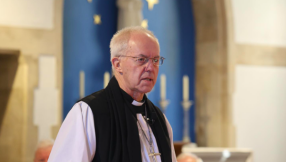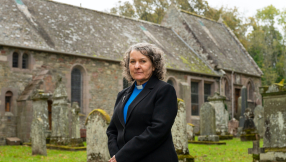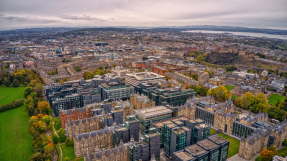Call to save Nazi code-breaking centre
The scientists say Bletchley, a country house 25 miles north of London, is falling into disrepair and will decay further unless it received much needed investment. They want it properly funded and turned into a National Museum of Computing.
"As a nation, we cannot allow this crucial and unique piece of British and world heritage to be neglected in this way," the 97 experts and top university computer academics said in a letter to the Times newspaper.
"The future of the site, buildings, resources and equipment at Bletchley Park must be preserved for future generations by providing long-term financial backing."
The cryptographers who worked at the site, once the most secret place in the country, are credited with helping to shorten World War Two by up to two years and save countless lives by deciphering around 3,000 German military messages a day.
Most famously, a team working under the brilliant mathematician Alan Turing cracked the Nazi's Enigma code, which the Germans regarded as unbreakable.
Scientists at Bletchley also designed and developed Colossus, a truck-sized machine which was one of the world's first programmable electronic computers.
After the war, Prime Minister Winston Churchill ordered that the Colossus computers and 200 Bombe machines, used to crack the Enigma code, be destroyed to keep them secret from the Soviet Union.
Bletchley's existence only came to light in the 1970s when the veil of secrecy was lifted and its role in the war revealed.
In their letter, the scientists said that many of the huts where the cryptographers worked are now in a terrible state of disrepair.
Although the site is open visitors as a museum, it is run by a trust and receives no external funding.
"Is it too much to ask that Bletchley Park be provided with the same financial stability as some of out other great museums such as the Imperial War Museum, the Science Museum and the Natural History Museum?" the letter asked.













